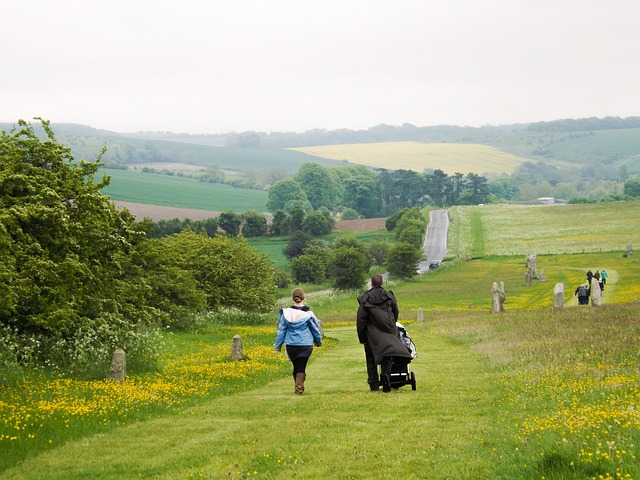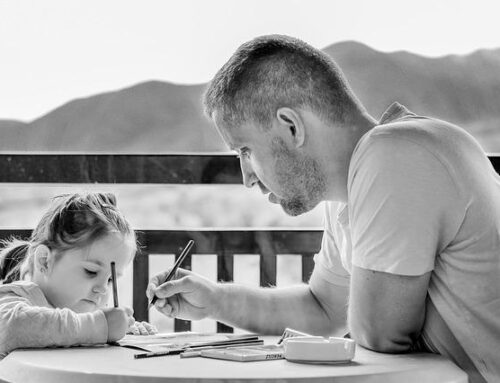When I first began practicing psychotherapy in 2001, there was so much I didn’t know. I was naive in believing that in order to be in a healthy relationship, we need to start by possessing a healthy center within ourselves. Well, of course that would be helpful, but that is not how reality works. We all have gaps in ourselves. Needs that we are unaware of and that we desire to have met. Neuroscience shows that after age 35, 95% of our reactions to things in our life are unconscious, especially in our intimate relationships. So, the reality is that no matter how much we think we have our stuff together, we really have a lot of work to do.
Now insert your intimate partner into your life equation. Remember when you thought you had everything figured out? How come you’re now feeling so frustrated? How’s that 95% of you reacting now?
It is throughout my years of personal and professional experience that a hard truth has become more and more clear to me. We need relationships in our lives in order to grow. We need people to hold a mirror up to us for us to be triggered in ways that challenge us to develop. No amount of healing is done in a vacuum. From the moment of our birth, our caregivers reflect back to us what we have come to believe is the image of who we are and how the world operates.
It is through this image of ourselves that we continue to reinforce by finding ourselves attracted to romantic partners who seem to differ vastly from us. Because there is such a difference, we then experience frustrations in our relationships while asking, “why is this so hard?” These differences touch on our insecurities and inadequacies. This is by our unconscious design with the purpose for growth, all in the name of meeting our unmet needs of love and connection.
Let’s revisit the metaphoric mirror held by our partner. This mirror, the discomfort that it creates when we peer into it, offers us a choice to grow. Like Neo, deciding on which reality to accept, we need to choose between the red or the blue pill. To enter “the real world,” or be “reinserted into The Matrix.” If you choose the red pill, please keep reading as we begin to reveal a reality that might be hard to accept.
Every relationship has moments of frustration. It is within these moments of frustration that we are met with a choice. We can choose to act out through the behavior of defensiveness (attacking or withdrawing), or choose to respond with curiosity. We, like our partner, act in undesirable ways when a need isn’t being met. Dude, let’s face it, when you have a need that isn’t being met, what is your knee jerk unconscious response? Is that response typically loveable and cute? I can honestly say that mine most certainly is! Just kidding, I know it is anything but loveable and cute.
There is a Swedish Proverb that states, “Love me when I least deserve it, because that’s when I really need it.” If you want to subscribe to this idea, then when your partner is not acting desirable, they are most likely reacting to a sensation of emotional pain. Let’s reverse this imagery. When you are attacking or withdrawing, are you feeling loved and connected? So, if your partner is acting in a way that is making it hard to love them, it would make sense to come to the conclusion that they are also not feeling loved and connected.
I would then suggest that when your partner is not acting desirable, it is time for you to pack your bags and begin the “Longest Journey.” I’m not talking about hopping on a plane and flying to Hawaii. Although, that does sound amazing! The journey that I am talking about is one that is referenced by Souix Native Americans as well as the late Thich Nhat Hanh. This is also discussed at length by Gregg Braden in his book, “Secrets of the Lost Mode of Prayer.”
“The Longest Journey you will ever take is the 18 inches from your head to your heart,” Thich Nhat Hanh. This is a conscious journey that creates a visceral process within your relationship. You choose to remove the personalization of your partner’s behavior, see them as their own individual, and open the door for curiosity into their experience. You are taking the idea that you are two separate people (head), and are opening the door of compassion to explore their feelings of disconnection (empathy/heart).
Feeling empathy for your partner’s experience is a choice. You know what it is like to feel disconnected and be perceived as not being loved and rejected, and you are choosing to recognize that within them. That choice made by you taps into the connection of your relationship. The 18 inches is a challenging road to travel because you have your own insecurities and inadequacies, and those experiences could very well be triggered while walking on the path to your own heart.
Gregg Braden refers to prayer as a physically felt experience, a heart based emotion that is generated by conscious cognitive processes, thoughts. It is seen that the human heart has the highest electromagnetic pulse (EMP) reading out of any other organ in the body. Therefore, the physical feeling of compassion for your partner when they are hurting can be experienced by both of you. This means that you might not even have to say a word while being a compassionate presence, resulting in a felt sensation of connection and healing.
The obstacles that can get in the way along the traversal of those 18 inches can be vast. However, if you can do it once, then you can replicate the process. As humans, we have 2 wonderful gifts; imagination and empathy. If you can imagine the pain one might be feeling based on what they experienced, then you can feel a physical sensation of that emotion. Want to see empathy take place in real time? Then try not to flinch when you watch a parkour fail video on Youtube, or try not to cry when watching a sad movie that moves something within you.
So, the longest journey we will ever take as humans is those 18 inches from our head to our heart. When we feel the emotions created by our thinking, we resonate that into our relationships. When our partners are upset and acting unconsciously, if we choose conscious connection, we are choosing to walk that path of connection through empathy. This is a hard path to walk. Sometimes it is a smooth road, and at other times it is a mountainous trail with rough terrain. Either way, we have a choice of whether or not to even begin that journey. If we want to feel more compassion from our relationship, then maybe we need to be more compassionate to our partners. Like Neo, we have a choice. Which pill will you choose?




